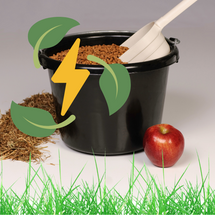Posted by Joyce Harman, DVM, MRCVS on Aug 2nd 2022
The Energetics Of Food
Chinese food energetics is an emerging concept in animal medicine, particularly for small animals. However, it has not yet gained widespread attention in the equine world. Processed, prepackaged horse feeds are just as harmful as bagged pet foods and can negatively impact overall health. It is essential to feed whole food materials and consider the actions of each food item.
To apply Chinese food energetics to equine nutrition, it is necessary to understand Chinese diagnostics and determine the individual needs of each horse. Consider if your horse is excess or deficient, and determine the primary or secondary issues. Additionally, assess the nutritional and caloric needs of the horse, taking into account factors like obesity, thinness, imbalance, and other specific circumstances.
Applying Chinese body and personality types can help guide food selection for each horse. Earth, Fire, Wood, Metal, and Water horses all have different characteristics and tendencies that can impact their nutritional needs. The season of the year should also be considered when selecting feeds, as some foods may be more suitable during specific times of the year.
Foods have similar properties to Chinese herbs, including temperature, flavor, direction, and meridian influence. Balance between Yin and Yang is crucial, as these principles apply to foods as well. Processed foods, which are often marketed for horses despite their minimal need for grain concentrates, can be detrimental to horses with warm or hot conditions.
Drugs can also affect energetic patterns, and food can be selected to counterbalance these effects. For instance, steroids damage Yin, leading to a Yin deficiency and consequently deficiency heat. Cooling foods can offset this heat. Similarly, bute can damage the stomach and liver, causing heat in these areas. Cooling foods can help counteract this drug's effects.
Various conditions may require different food strategies. Keep in mind that each horse may present differently, and some conditions may require both warm and cool foods. For example, ulcers may result from excess heat in the liver or stomach Yin deficiency. Cooling foods could be used for both conditions without causing problems. Laminitis, arthritis, and other conditions may also require different food strategies depending on the specific presentation.
Horse feeds generally contain limited ingredients, but diverse foods can be fed to horses. Trying various vegetables and fruits can be beneficial and add variety to their diet. In different parts of the world, horses may be exposed to a wider range of foods from a young age, which they learn to enjoy.
Food therapy can enhance the healing process for many equine conditions. Open up your fridge and look beyond traditional foods and experiment with adding variety to their horses' diets to promote optimal health.
Hot, warm diseases
Ulcers, laminitis, uveitis, inflammatory diarrhea, hepatitis, urinary tract inflammation, PPID (some), Insulin resistance (some), Yin deficient arthritis, inflamed skin, itchy skin, atopy, colic (some), uterine infections, anhydrosis.
Foods: alfalfa, amaranth, asparagus, barley bran, barley grass, barley, broccoli, buckwheat, cantaloupe, cauliflower, celery, citrus, cucumber, eggplant, flax seed (oil), grass, lettuce, millet, pear, peppermint, persimmon, radish, soy bean oil, spinach, strawberry, summer squash, sweet corn, tomato, watermelon rind, watermelon, wheat bran, wheat grass, wheat, zucchini.
Cold, cool diseases
Arthritis, many diarrheas, PPID (many), insulin resistance (many), hypothyroid.
Foods: apricot, banana, cherry, cinnamon, coriander, fennel, garlic, ginger, ginger, horseradish, kale, kelp, leek, lettuce, maltose, mustard greens, oats, olive oil, parsley, parsnip, peach, pumpkin, quinoa, seaweed, sesame seed, spelt, squash, sunflower seeds (may not be as good with the shells), sweet feed, tangerine peel, turmeric, winter squash.
Neutral foods that could be used in many conditions:
apple, apricot, beet pulp, buckwheat, cabbage, carrots, Chinese cabbage, corn, fig, grape, papaya, peanut hay, peanut oil, radish, rice, rye, sweet potato.
Pitchford P. Healing With Whole Foods. North Atlantic Books, Berkeley CA. 1993.
Ward, M. Horse Harmony. Myriah Press. 2008.

